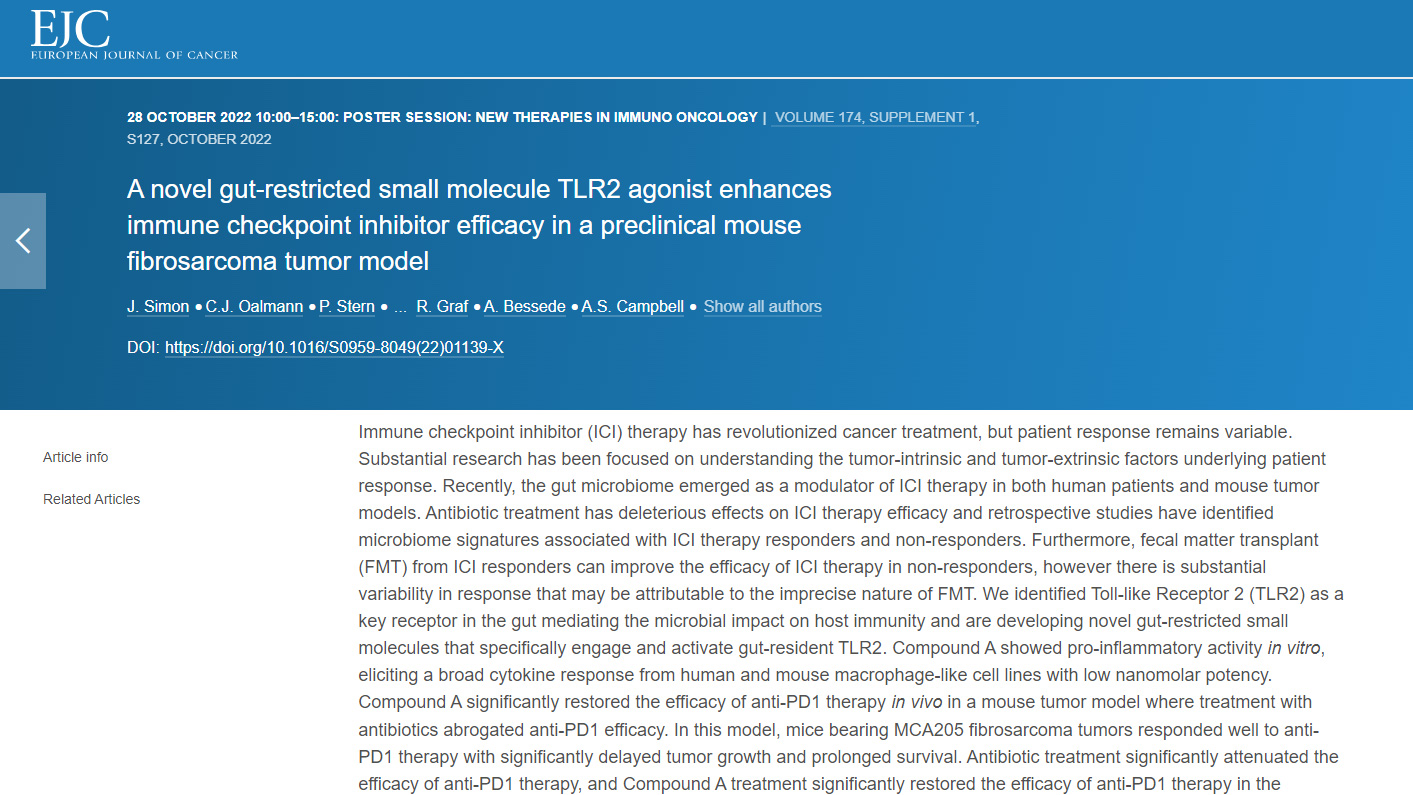European journal of cancer, 2022, October 1
J. Simon, C.J. Oalmann, P. Stern, R.K. Senter, M. Chien, R. Graf, A. Bessede, A.S. Campbell
Abstract
Immune checkpoint inhibitor (ICI) therapy has revolutionized cancer treatment, but patient response remains variable. Substantial research has been focused on understanding the tumor-intrinsic and tumor-extrinsic factors underlying patient response. Recently, the gut microbiome emerged as a modulator of ICI therapy in both human patients and mouse tumor models. Antibiotic treatment has deleterious effects on ICI therapy efficacy and retrospective studies have identified microbiome signatures associated with ICI therapy responders and non-responders. Furthermore, fecal matter transplant (FMT) from ICI responders can improve the efficacy of ICI therapy in non-responders, however there is substantial variability in response that may be attributable to the imprecise nature of FMT. We identified Toll-like Receptor 2 (TLR2) as a key receptor in the gut mediating the microbial impact on host immunity and are developing novel gut-restricted small molecules that specifically engage and activate gut-resident TLR2. Compound A showed pro-inflammatory activity in vitro, eliciting a broad cytokine response from human and mouse macrophage-like cell lines with low nanomolar potency. Compound A significantly restored the efficacy of anti-PD1 therapy in vivo in a mouse tumor model where treatment with antibiotics abrogated anti-PD1 efficacy. In this model, mice bearing MCA205 fibrosarcoma tumors responded well to anti-PD1 therapy with significantly delayed tumor growth and prolonged survival. Antibiotic treatment significantly attenuated the efficacy of anti-PD1 therapy, and Compound A treatment significantly restored the efficacy of anti-PD1 therapy in the presence of antibiotics. We conclude that Compound A and related analogs have the potential to enhance ICI therapy by modulating the anti-tumor immune response via activation of TLR2 in the gut. Further mechanistic and pharmacological studies in additional tumor models are in progress.
https://www.ejcancer.com/article/S0959-8049(22)01139-X/fulltext#relatedArticles

